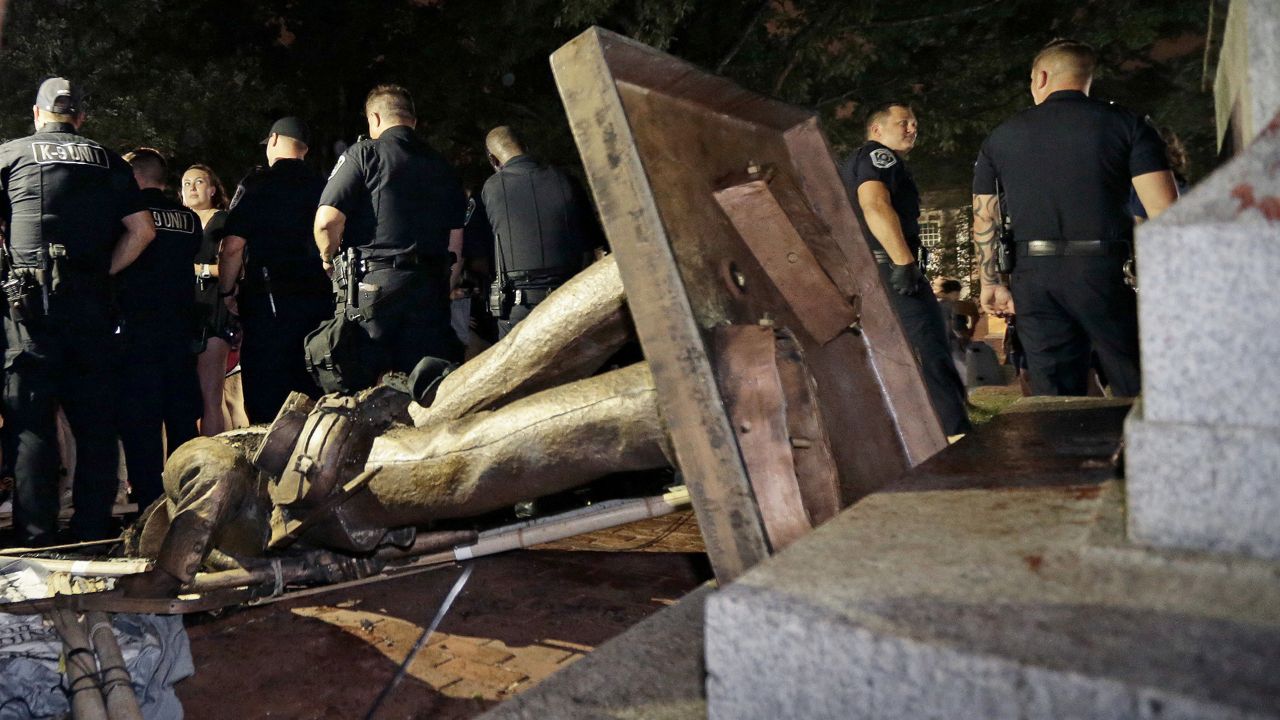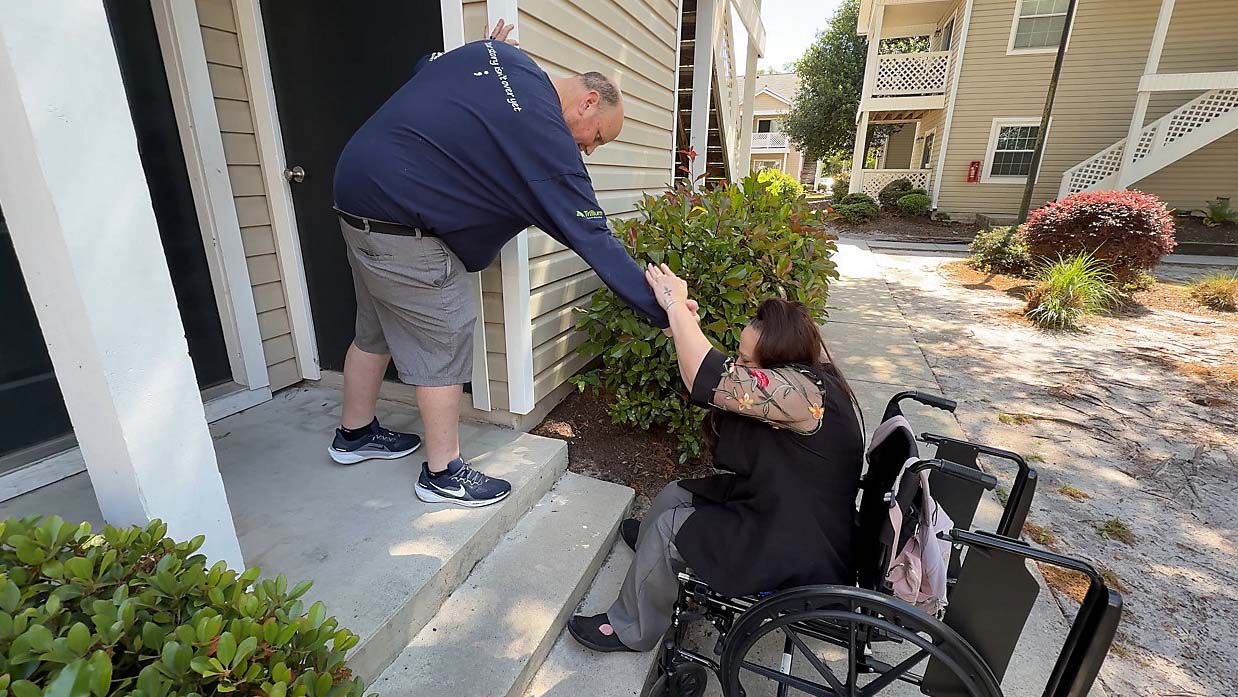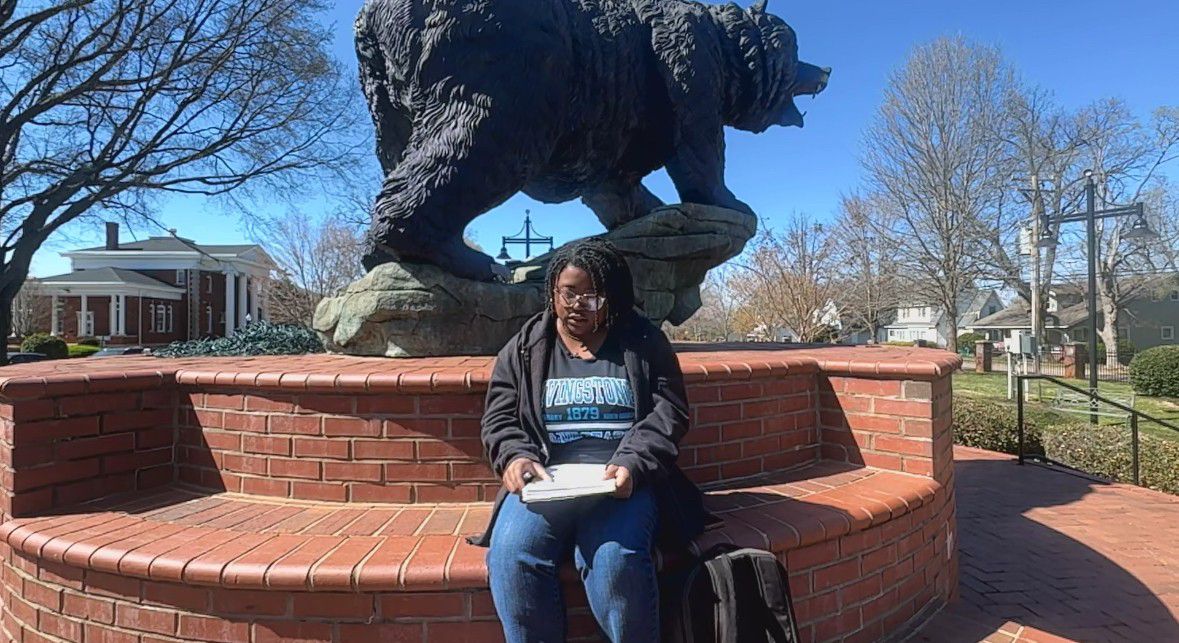Confederate monuments in many North Carolina cities and towns have been moved or torn down. But a new poll shows a majority of people in the state say they should stay in public spaces.
The poll, from High Point University, found 58% of people think Confederate monuments should remain where they are, and 42% say they should be removed.
During 2020, 168 Confederate monuments or symbols were removed from public spaces around the United States, including 24 in North Carolina.
The High Point University poll asked almost 1,400 people about the monuments between March 30 and April 2. The new poll asked many of the same questions from a November 2019 poll to see how attitudes had changed.
“We found only a modest shift in North Carolinians’ attitudes,” said Jason Husser, director of the Elon Poll and associate professor of political science. “Those in favor of removing monuments from public spaces increased from 35 percent to 42 percent.”
That 2019 poll found that more than 65% of people in North Caroline said the monuments should stay in public spaces. The online poll has a credibility interval of 2.8%.
Protests over the death of George Floyd and police killings of other Black people last year led to nationwide protests.
More than half of the people polled, 52%, “said that Floyd’s death and other events in 2020 made no difference in their opinions on the subject.”
“Thirty-two percent say that they are more in favor of removing the monuments because of last year’s events and 17 percent say they are less in favor,” according to the university.
The survey found people in North Carolina are split on the question over Confederate monuments by race and politics.
“Among Whites, 70 percent believe the monuments should remain on public land compared to 25 percent of Blacks and 51 percent of members of other racial groups,” according to the university.
As for the political splic, 84% of Republicans and 33% of Democrats said the monuments should stay where they are. About two-thirds of people who do not identify with either party said the monuments should remain.
When asked, “Do you think removing Confederate monuments from government property mostly helps or mostly hurts race relations, or does it not make much of a difference?” About 28% said it mostly helps and 39% said it mostly huts race relations. About 32% said it made no difference.
Opinions split by age and education level too. “Generally speaking, younger residents and those with a college degree are more likely to say the monuments should be removed, while those who are older and have less than a bachelor’s degree are more likely to say they should remain.”
A majority, 53%, of people in North Carolina between 18 and 34 years old say “monuments should be removed.” But most people 65 and older in the state, 69%, said they should remain.
There was more agreement on possible solutions on what to do with monuments to the Confederacy on public property. About 64% say plaques should be added to give historical context and 63% “said moving the monuments and statues to history museums was a good idea.”
More than half, 54%, “said it would be a good idea to move them to Confederate cemeteries or memorials.” A minority, 37%, said the monuments should be replaced with new monuments honoring abolitionists from the South.
The survey also asked about the cause of the Civil War, and showed an almost even split, with 51% of respondents who say the war was primarily about states’ rights and 49% who say it was about slavery.









